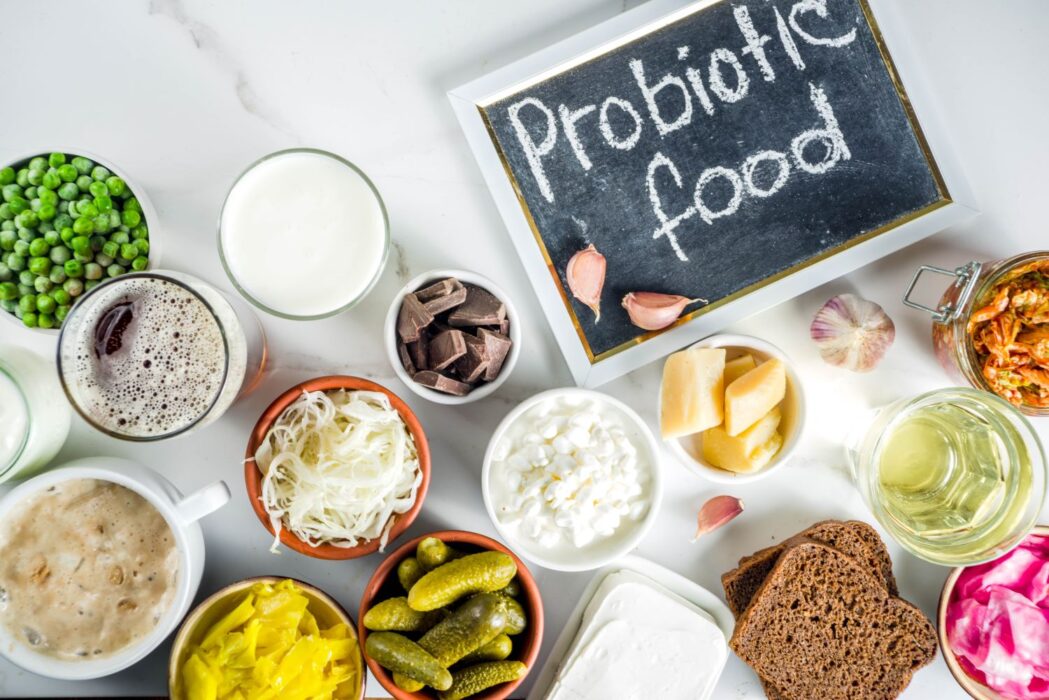The role of probiotics
Probiotics are a powerful way to support your little one’s digestion. Let’s look at what they are and how to make sure your child is getting enough.

In recent years, the world of nutrition has been abuzz with talk about probiotics and their potential benefits for gut health. But what exactly are probiotics, and how can they support children’s well-being?
THE GUT MICROBIOME
The human gut is home to trillions of microorganisms that collectively form the gut microbiome. These tiny inhabitants play a big role in our overall health, particularly in how well we absorb nutrients and how effectively our immune system functions. For children, a balanced gut microbiome is a huge factor in their healthy growth and development. Diet, stress and antibiotics can disrupt the delicate balance, so it may be useful to introduce beneficial bacteria (known as probiotics) to support their gut’s flourishing ecosystem.
WHAT ARE PROBIOTICS?
Probiotics are live microorganisms, mainly bacteria or yeasts, that give us health benefits when we eat them in adequate amounts. They work by colonising the gut and restoring or enhancing the diversity of beneficial bacteria in our bodies. Common probiotic strains include Lactobacillus and Bifidobacterium, which can both be found in certain foods and supplements. While probiotics are naturally present in some fermented foods like yoghurt and kefir, it can still be wise to introduce specific strains to kids in supplement form, to make sure they have a sufficient amount to keep their tummy happy!
BENEFITS OF PROBIOTICS
Probiotics offer a range of benefits for children’s gut health and overall wellbeing. They can help alleviate common digestive issues such as diarrhoea, constipation and bloating by promoting a healthy balance of gut bacteria. Probiotics also support the development and maturation of your little one’s immune system, helping to reduce the risk of infections and allergies in children. Studies indicate that probiotics can also lower the likelihood of catching coughs and colds, and may even have a preventive effect against eczema in susceptible children.

SOURCES
If you want to go down the supplementation route, make sure to choose age-appropriate, reputable probiotic supplements that contain strains specifically beneficial for children – consult with your doctor for guidance on this.
Alternatively, introducing probiotic-rich foods into your child’s meals is an excellent way of ensuring they get the good bacteria they need. Yogurt is a popular choice with kids – simply be sure to choose varieties that contain live and active cultures. Kefir, a fermented milk drink, is another excellent source of probiotics. You can also consider fermented foods like sauerkraut and fermented pickles if your little ones are amenable, which provide a natural dose of friendly bacteria.
Probiotics are not a one-size-fits-all solution, and everyone will have an individual response. It’s best to introduce probiotics gradually and if your child has specific health concerns or you have any reservations, talk to your doctor first.
In the quest for nurturing children’s overall health, paying attention to their gut health is definitely important. Probiotics, with their potential to restore and maintain a healthy gut microbiome, can be a really wonderful addition to your child’s diet, supporting lots of systems in your little one’s body.











Comments